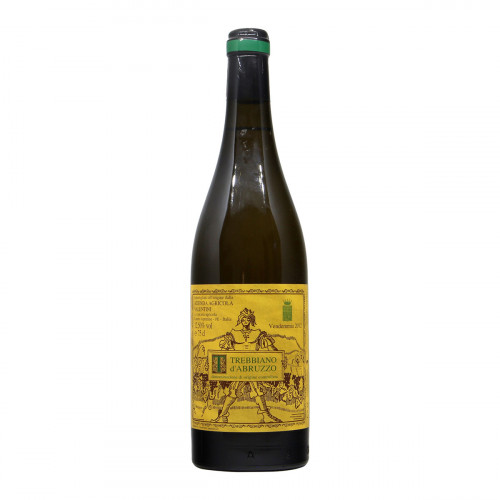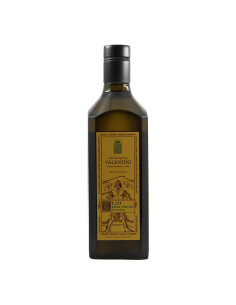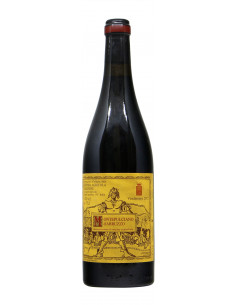Trebbiano d'Abruzzo 2012 Valentini
Trebbiano d'Abruzzo 2012 is a fine natural white wine, one of the three wines produced by Valentini winery in Loreto Aprutino, in the province of Pescara in Abruzzo. It is produced only with Trebbiano grapes, a simple grape variety, usually used for everyday wines, from which, however, Francesco Valentini creates this legendary white wine from Abruzzo able to compete with the great white wines of the world.
This fine wine is certainly a symbol of Italian excellence in the world, Trebbiano d'Abruzzo Valentini is produced with absolutely natural techniques, the vineyards are treated in a completely artisan way and in the winery Francesco di Valentini does not manipulate the wine, we are dealing with a natural wine even if the company Valentini does not want to be classified among the organic wines without sulphites. Spontaneous fermentation takes place in old oak barrels of 50/70 hl where it ends the aging for 12 months. Valentini wines are unique and each vintage has different characteristics.
Trebbiano d'Abruzzo 2012 is undoubtedly a great fine wine, with an intense golden yellow color, the nose is complex and fascinating with elegant floral notes of white flowers including broom, medicinal herbs that blend with ripe white pulp fruit, spicy hints of vanilla and coffee and mineral notes. The sip is dazzling and combines flesh, freshness and flavor in a harmonious and enveloping blend and an incredible length. A rare wine that remains carved in the heart, destined for a very long life. It goes well with fish first courses, grilled fish mushroom risotto and white meat.
DENOMINATIONE: Trebbiano d'Abruzzo DOC
REGION: Abruzzo (Italia)
GRAPES: 100% Trebbiano
VINIFICATION: spontaneous fermentation with indigenous yeasts without temperature control or filtration in old oak barrels of 50-70 hl where it remains in aging for 12 months.
Natural Wines: the philosophy behind winemaking
Natural wine does not only mean without the addition of sulfites, it means working according to ancient winemaking traditions with sulfur and copper in the vineyard, based on the fatigue of manual labor, the least interventionist activities possible, letting the cycles of Nature do most of the work until the vinification of grape juice as it is, without substances some if not their own. The result of all this production philosophy is natural wine, a non-standardized wine that best expresses its identity, its terroir and its most intrinsic characteristics. Natural wines are much more difficult to produce than the wines to which we are traditionally accustomed, because when there is no help from the use of balancing substances and support for winemaking, the wine can not be a way to put: either it is good or it is bad. The natural wine was born as a commitment of natural artisan winemakers to raise their product to the standardization of taste and identity of the wine and the vineyard that now, thanks to the widespread use of chemistry and new technologies, leads to products with the same flavors, regardless of the production area or type of cultivation used.








